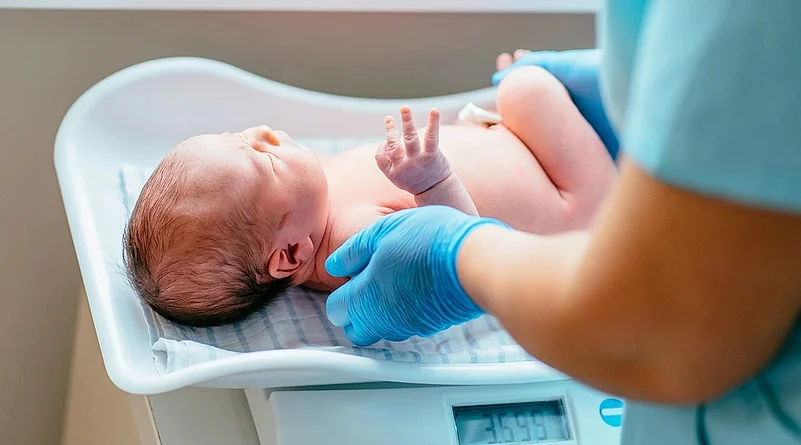A recent study published in BMJ Global Health has highlighted a troubling issue in India’s ongoing battle against low birth weight (LBW), a crucial indicator of newborn health.
Despite significant progress in reducing LBW rates across the country over the past three decades, the study reveals that certain states continue to bear a disproportionate burden. Among the poor performance states--Uttar Pradesh, Bihar, Maharashtra, and West Bengal alone account for nearly half (47%) of all LBW in the country, as per the research which spans data from 1992 to 2021.
The LBW is linked to significant maternal health challenges, including poor nutrition and limited access to healthcare, and has long-term implications for children's cognitive development and susceptibility to chronic health conditions.
“While India’s overall low birthweight rate has fallen from 26% in 1993 to 18% in 2021, certain states have made slower progress. Uttar Pradesh, Bihar, Maharashtra, and West Bengal are home to nearly 4.2 million LBW infants annually, which is a staggering 47% of the national total,” said the research about the health status of the infants.
The study revealed that LBW is most prevalent among babies born to women with little or no formal education and those from the poorest households. These children are also more likely to be born in rural areas where healthcare infrastructure remains inadequate.
Despite improvements in data collection, the study also flagged significant gaps, particularly in rural areas where births are less likely to be weighed, leading to underreporting of LBW cases.
“LBW is not just a health concern, but a glaring indicator of the deep-rooted inequalities in India’s maternal and child healthcare system,” said the researchers Omar Karlsson from Duke University, USA , Akhil Kumar from University of Toronto, Canada, Rockli Kim from Korea University College of Health Science, South Korea, and SV Subramanian from Harvard Center for Population and Development Studies, USA.
They noted that “the high prevalence of LBW in populous states like Uttar Pradesh and Bihar signals the urgent need for focused interventions, particularly in rural areas, where access to quality healthcare and education remains limited.”
Strengthening healthcare infrastructure, especially in rural and underserved areas, is essential to ensuring that all women have access to proper prenatal care, the researchers suggested.
Also, increasing maternal education, particularly about nutrition and the importance of healthcare during pregnancy, will be key in reducing LBW rates.
“The persistence of high LBW rates in certain regions is a pressing concern that demands immediate and focused attention. Targeted policies, better healthcare infrastructure, and comprehensive education and nutrition programs are essential to reducing LBW in India and ensuring healthier futures for all children,” said the report.














